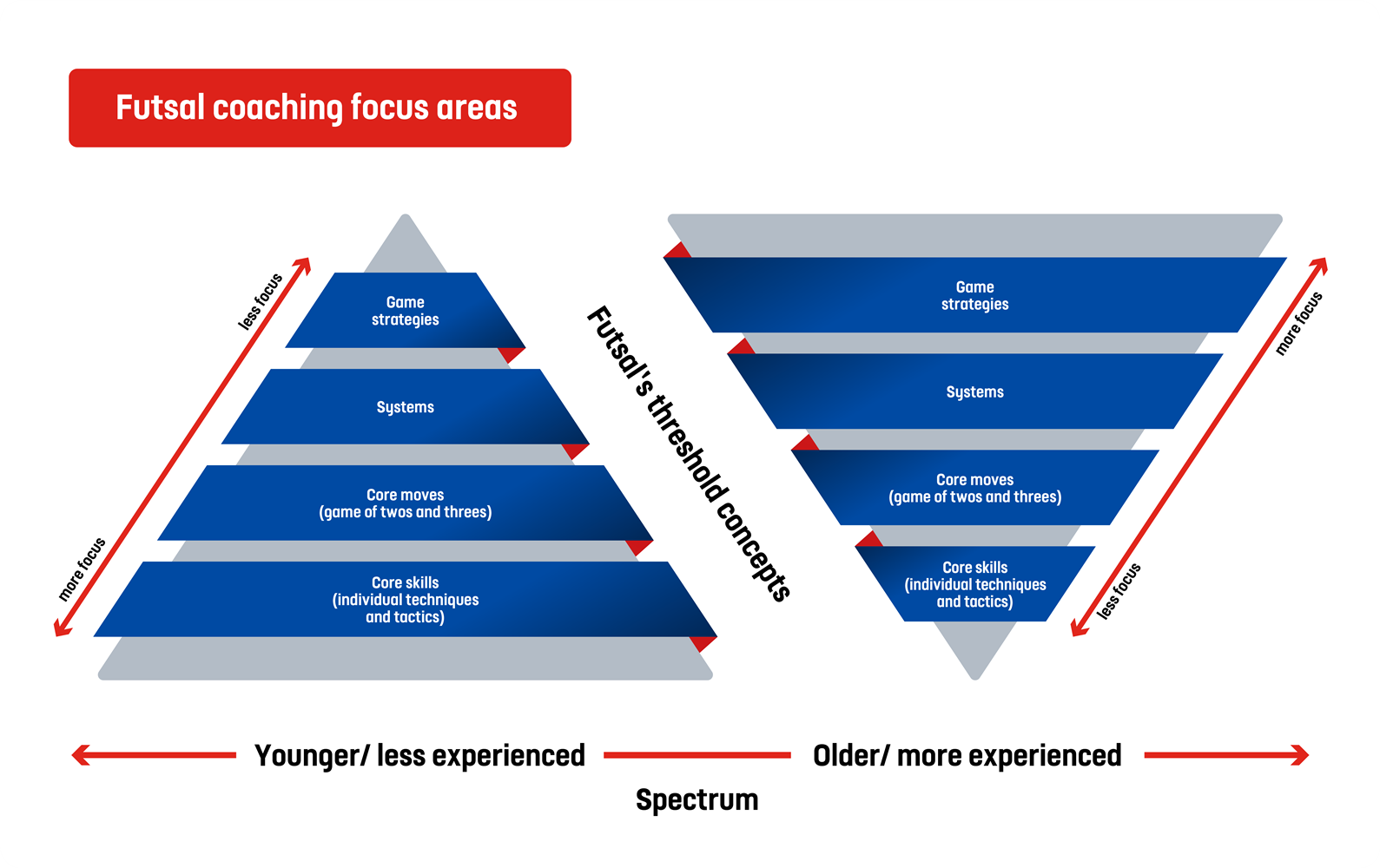To master our attacking and defending core skills...
...players rely on six main capabilities:
- scanning
- positioning
- technique
- movement
- deception
- Timing.
It doesn’t matter whether your player has the ball, is about to get it or even just lost it – these capabilities always matter. Let’s take a closer look.
|
Capability |
Definition |
Questions to ask yourself |
|
Scanning |
‘Searching’ for useful information |
• How often do your players scan? • What are they looking for? • What are they looking at? |
|
Positioning |
Where players move from and to, and when |
• Where are your players in relation to the ball, the goal, their teammates and their opponents? • What’s their body orientation? |
|
Technique |
How players execute the core skills |
• What techniques do your players use? • How effective are they? |
|
Movement |
How players use their bodies effectively |
• How do your players use their body? • How do they manage their speed and direction? |
|
Deception |
Hiding and disguising intentions and actions |
• How do players hide and disguise their intentions and actions to trick opponents? |
|
Timing |
Choosing the right moment to act |
• When do your players decide to act? • How do they sense the right moment |
These six capabilities underpin our attacking and defending core skills. They’re also important for core moves and playing within systems.
With so much to coach, it can be hard to know where to start.
Try to identify the development needs of your team – and adjust your coaching to fit. For example, if the players are younger and/ or less experienced, you may need to spend more time helping them master the core skills and their individual duals because these are fundamental to further development.
However, if they are older and/ or more experienced they are more likely to have grasped the core skills so it might be more appropriate to spend more time coaching core moves or systems.

Want to know more? Check out the next section on two-player moves.


